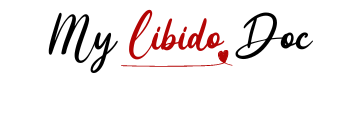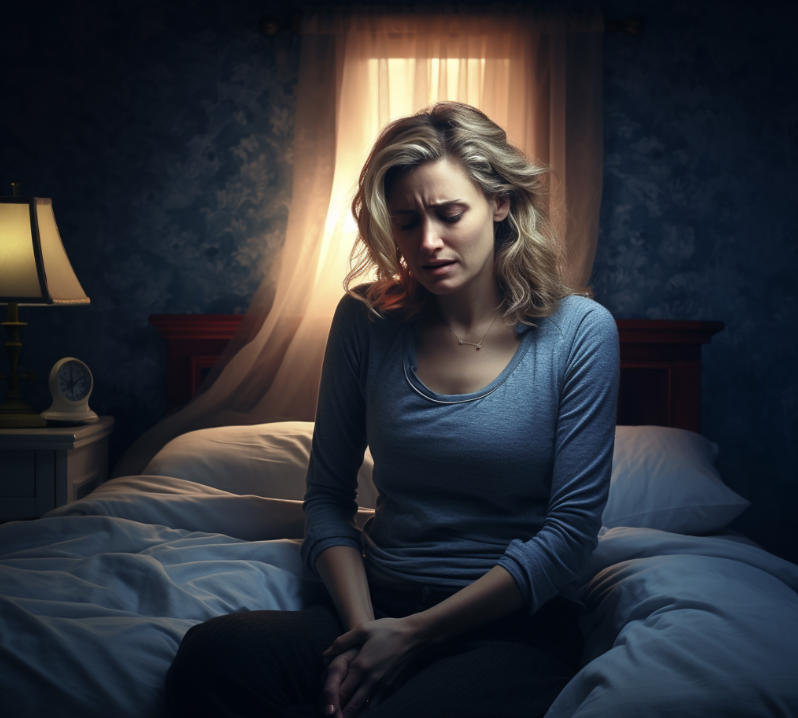Hair can be an important part of someone’s appearance and identity. This is especially true for women. Hair can be an essential part of our beauty, and in many cases, of our self-esteem. Yet almost 20-60% of women suffer from hair loss before the age of 60 (Goluch-Koniuszy, 2016). And it’s due to menopause… Menopause can cause hair loss in some women. It’s all part of the hormonal rollercoaster women go through during this life stage.
What is happening in menopause that affects hair growth?
During menopause, a drop in estrogen levels can lead to hair follicles becoming thinner and more prone to shedding. Estrogen is abundant in a woman’s body before menopause. It helps keep hair in the growth phase and prevents it from shedding too quickly. When menopause hits, estrogen levels drop significantly, disrupting this delicate balance. This can lead to hair follicles becoming thinner and weaker, resulting in hair loss or thinning.
In addition, there is an increase in androgens (male hormones) during menopause which can also contribute to hair loss. Testosterone can contribute to hair loss, but it’s a bit more nuanced than a straightforward cause-and-effect relationship. Testosterone itself isn’t the primary culprit. It’s actually a hormone called dihydrotestosterone (DHT), which is derived from testosterone. It’s the conversion of testosterone to DHT and its interaction with hair follicles that causes the issue. In some women, DHT can attach to hair follicles and shrink them over time. This process is known as miniaturization, and it can lead to thinner and finer hair, ultimately resulting in hair loss. It is similar to male pattern baldness but can happen to a woman at this time of life.
The good news: hormonal hair loss can grow back after menopause.
Yes, hair loss during menopause can be incredibly distressing. But the good news is that hair usually grows back.
In the meantime, there are several solutions and strategies you can consider to manage it and fight back against hair loss. First, we recommend that you get the basics right:
Eat a healthy diet. This is essential for hormone balance, hair health and good overall health. We are going to lay out the diet for strong hair, step by step:
- Protein is super important for hair health. We should aim to consume between 1 to 2 grams of protein per kilogram of body weight. Your weight in kg’s is about half of that in pounds. So, a 120 lb. woman weighs about 55kg and should be eating 55-110 grams of protein. 55 grams of protein is not the same as the weight of your food. This is actual grams of protein per egg (5 grams of protein are in 1 egg) or chicken breast (1 medium breast weighing 120 grams has 37 grams of protein).
You can use an app like Cronometer, My Fitness Pal or others to track grams of protein. Your protein should be consumed mainly at breakfast and lunch, with smaller portions in an afternoon snack and at dinner.
Good sources of protein for women include cottage cheese or Greek yoghurt if you tolerate dairy, fish, meat (veal, beef), poultry (turkey, chicken), legume seeds (lentils, beans, peas, broad beans), seeds (pumpkin, sunflower, sesame), nuts (pistachio, almonds, walnuts), whey protein smoothies and eggs. - Fats are necessary too! Focus on foods with essential fatty acids, like flaxseeds or flaxseed oil, wild salmon, tuna, nuts (walnuts, almonds), poultry, eggs and olive oil.
- As for carbs, too many highly processed foods rich in simple sugars is one of the indirect factors causing excess hair loss (Goluch-Koniuszy, 2016). A diet high in simple sugars causes blood sugar dysfunction, high blood sugar and insulin issues like insulin resistance. High insulin directly contributes to an increase in androgen hormones.
In the hair follicle, insulin increases DHT concentration which leads to miniaturization and hair loss as mentioned above. A healthy hair diet should be low in simple carbs and high in complex carbohydrates with fiber and a low glycemic load. Good types of carbs to eat are rice, vegetables and fruit with a low glycemic load.
Micronutrients are also needed for hair health:
- Vitamin C increases the absorption of non-heme iron, found in plants. Eat vitamin C rich vegetables (parsley, kale, horseradish, peppers, Brussels sprouts, broccoli, cauliflower, spinach) and low-sugar fruit (black currants, strawberries, wild strawberries, kiwi, red currants and citrus fruit).
- Vitamin D is important for hair so eat fatty fish (mackerel, salmon, sardines, tuna) and mushrooms. Also be sure to get some safe sun exposure so your body can manufacture vitamin D.
- Be sure to get folate which help tissues to build hair. Good sources of folate are kale, brussels sprouts, green peas, white beans, asparagus, beets, kohlrabi, halibut, cod.
- Pantothenic acid (B5 vitamin) is responsible for proper hair growth. Food rich in B5 vitamin are mushrooms, cauliflower, liver, eggs, beans, milk and green leafy vegetables.
- Biotin (B7) is a vitamin whose deficiency might lead to hair loss. Biotin is found in largest amounts in milk products and in vegetables.
- Niacin is necessary for hair. Good sources of niacin are meat, legumes, seeds, milk, green leafy vegetables, fish, peanuts, shellfish.
- Low vitamin B12 is linked to excess hair loss in women with B12-deficiency anemia. Sources of B12 are animal products: meat, fish, eggs, milk and dairy products and seafood.
- Vitamin A protects hair from being too fragile. However, in excess from animal products, it can also be the cause of hair fall. A good safe source is from carotenoids present in vegetables and fruit.
Minerals are also critical for hair growth.
These include zinc, iron, copper, selenium, silica, magnesium and calcium. Dietary sources are:
- Zinc concentration in blood should be 70-250 µg/dl. Zinc is plentiful in oysters. Other good sources are other kinds of seafood, red meat, poultry and nuts.
- Ferritin is the stored form of iron in the body. At ferritin levels less than 40 ng/ml, we see hair loss. But at levels between 40 ng/ml and 70 ng/ml, we may also see hair loss. So, aim for a ferritin level of just over 70. The best sources of iron are animal products which contain the better-absorbed form of heme iron so eat beef, pork, poultry, lamb, fish. But plant products such as white beans, pistachio nuts, parsley, dried apricots and figs are also rich in iron.
- Silicon is responsible for growth and shine of hair. It can be found in grains and their whole meal products (grits, rice, oatmeal, bran), green beans, garlic, chives and seafood.
- Magnesium is found in cacao, nuts and legumes.
- Good sources of calcium include dairy products, parsley, hazelnuts, white beans, kale, walnuts, fish and cabbage.
Flavonoids are polyphenols, which are an important type of antioxidant. Flavonoids found in herbs contributed to faster hair regrowth. A high level of flavonoid compounds is found in bitter chocolate (minimum 70% cocoa), vegetables (onions, tomatoes, peppers, broccoli) and fruit (apples, berries, black currant, citrus fruits and grapes). Flavonoids are also in lentils, spices, red wine, green tea, coffee and tea.
Don’t forget to stay hydrated. Mineral or spring waters can be a good source of water and minerals, both of which are important for hormonal and hair health.
A supplement can be very helpful to fill in any nutritional holes. For hair, it should contain zinc, copper, iron (especially for vegetarians), vitamins A, D, E, niacin, B12, biotin, the B-complex group, including pantothenic acid and p-aminobenzoic acid. One study saw a positive effect on hair after 6 months of supplementation with L-lysine (1.5 g/day) and iron (72 mg/day). An increase in ferritin and a 36% lower hair fall was observed.
To sum it all up, variety in the diet is key!
A balanced whole foods diet can prevent deficiencies in the important vitamins or minerals so essential to the hair building process.
Other tips for optimal hormone and hair health include:
- Exercise helps to maintain hormonal balance, which promotes healthy hair growth. Choose something you enjoy so that will commit to doing it on a regular basis.
- Reduce stress where possible & learn to manage stress. Chronic stress is a contributing factor in hair loss at any stage of life. Try yoga, meditation, getting out and enjoying nature and breathing techniques. These are all ways to help you manage stress.
- Keep alcohol to a minimum. Alcohol worsens symptoms of menopause so we recommend either abstaining or only drinking on occasion.
There are further steps you can take for hair loss:
- Hair Care: Avoid excessive high heat on your hair as this can damage it. Putting hair up in a tight bun or ponytail can add stress to the hair follicles. Be gentle with your hair and wash it regularly, every 2-3 days, with a mild shampoo.
- Scalp Massage: Regularly massaging your scalp can increase blood circulation to the hair follicles and promote hair growth.
- Topical Medications: Some over-the-counter and prescription topical treatments can help promote hair growth and slow down hair loss. These are typically applied directly to the scalp.
- Hormone Replacement Therapy (HRT): You might want to consider bioidentical HRT, especially if you are finding menopause difficult. HRT will help balance hormone levels and potentially reduce hair loss. HRT may have risks and side effects, so discuss the pros and cons with a medical professional.
- Prescription Medications: Finasteride is a prescription medication that can help reduce hair loss by blocking the conversion of testosterone to DHT. It’s typically used in men and not recommended for women of childbearing age. Minoxidil is another option found to be an effective hair growth stimulant. It does take time before results show. Minoxidil is not safe to use if you plan on getting pregnant.
- Review your current medications with your doctor. You might be taking a medication that causes hair loss and is making the problem worse.
- Follow these guidelines and stay positive! Remember, stressing about hair loss could make it worse.
Hormonal hair loss can grow back after menopause. So, take care of yourself as best you can. See your doctor if you feel the need to. In the meantime, you could possibly experiment with funky scarves, hats and different hair styles to change up your look while you wait for your hair to grow back.
does menopause cause hair loss? It can happen – but there are step-by-step solutions provided.
For more information go back to Menopause and Sex
References:
Goluch-Koniuszy Z. Nutrition of women with hair loss problem during the period of menopause. Menopause Review/Przegląd Menopauzalny. 2016;15(1):56-61. doi:10.5114/pm.2016.58776.
Kamp, E., Ashraf, M., Musbahi, E., & Degiovanni, C. (2022). Menopause, skin and common dermatoses. Part 1: hair disorders. Clinical and Experimental Dermatology, 47. https://doi.org/10.1111/ced.15327.





